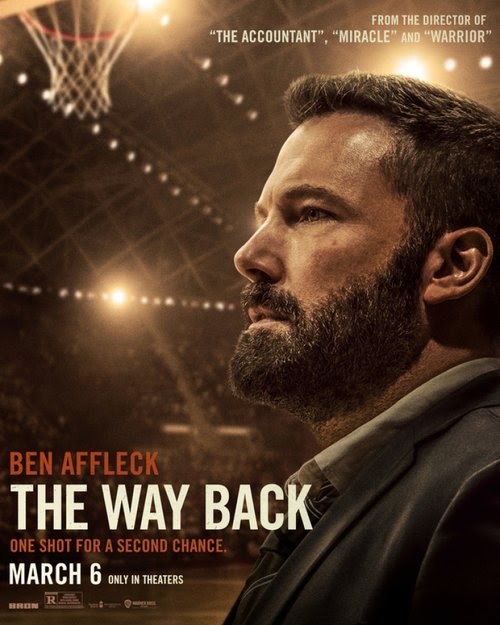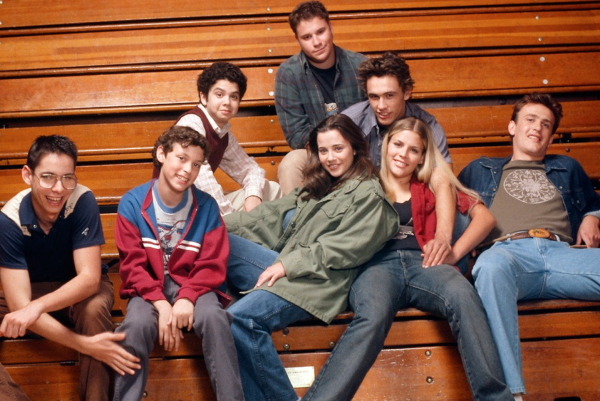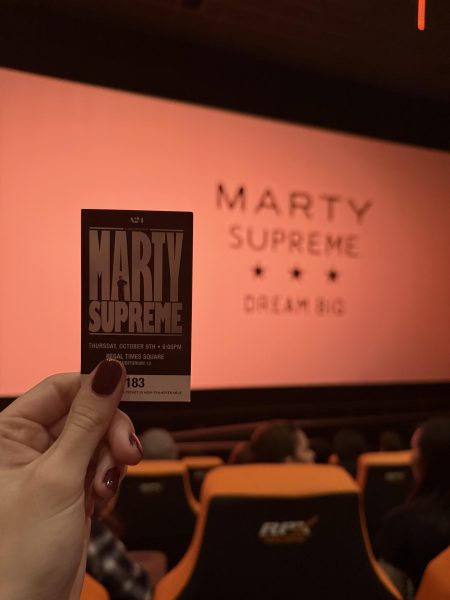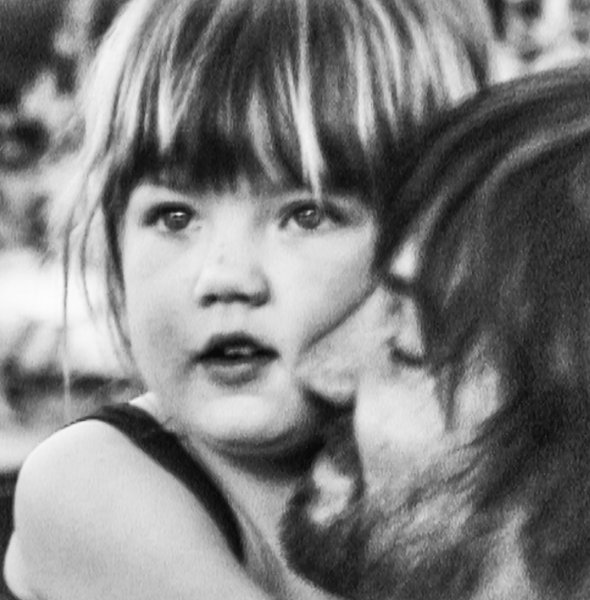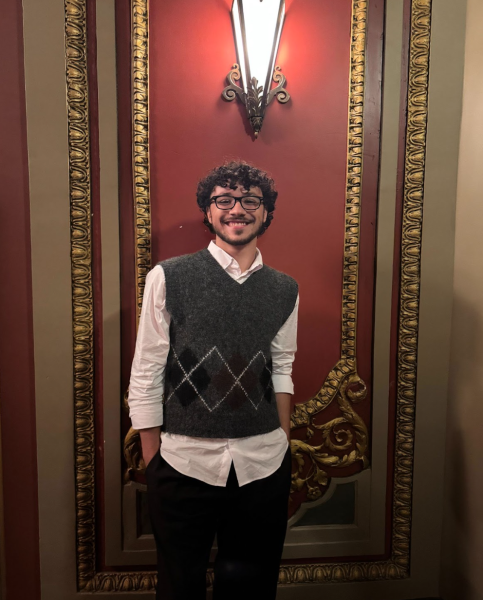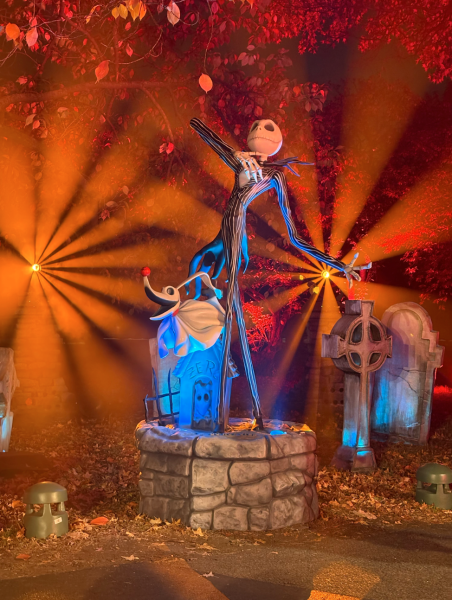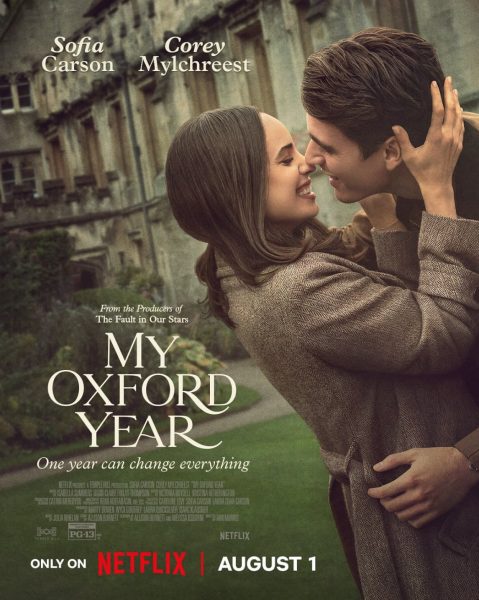“The Way Back” Is Not Your Average Sports Film
Humans love media portraying a personal experience; it makes for great art because it reveals to us the complexities of being human. The film “The Way Back,” starring Oscar-winning director and writer Ben Affleck, is one such piece of media that touches on personal loss, the difficulties of alcohol addiction, and how there is a “way back” from them.
Affleck is Jack “Jackie” Cunningham, a construction worker and former high school star basketball player whose alcohol addiction has led to the breakdown of his marriage with his wife Ang (Janina Gavankar) as well as isolation from his family. When Jackie receives a call from Father Devine (John Aylward), the head of his alma mater Bishop Hayes High School, offering him the head basketball coach’s job, he is initially reluctant. Upon accepting the position, Jackie discovers the team is not on the road to the NBA, but it is made up of good players and kids. Jackie provides the leadership and motivation the team is lacking while the team gives Jackie a sense of purpose, a burst of inspiration and an enthusiasm that is not induced by alcohol.
Affleck is the shining star of “The Way Back.” His poignant performance as Jackie is moving and raw, especially considering the actor’s personal struggles with alcohol addiction. It is not uncommon for actors to draw on their own experiences when playing a character, but it strikes a different nerve when the experience has to do with addiction, a life-altering disease that touches many people. Affleck admitted he was drawn to the role of Jackie because of how analogous the character’s life is to his. Affleck told the New York Times, “Regarding ‘The Way Back,’ the benefits, to me, far outweighed the risks. I found it very therapeutic.” Affleck’s performance in “The Way Back” is a triumph because of its uninhibited emotional portrayal of the difficulties surrounding alcohol addiction, and it proves to be even more impressive when observing its impact on Affleck.
The creative vision of director Gavin O’Connor further differentiates and uplifts “The Way Back” from the formulaic sports film genre. The Bishop Hayes basketball games’ busy scenes juxtaposed with the measured focus on Jackie and his outbursts are skillfully shot. O’Connor truly succeeds in the choices he makes for Jackie, which delightfully complement Affleck’s strong performance. A particularly notable scene is when Jackie is drunkenly rehearsing turning down the offer of head coach from Father Devine. The camera skillfully depicts the depth of Jackie’s alcohol addiction through its focus on him repeatedly taking a can of beer out of the freezer to drink while methodically placing another can of beer in the freezer for later. Jackie and the camera become more sluggish with each successive can, and the clarity becomes as mumbled as Jackie’s speech. O’Connor’s symbolic use of natural light in combination with cinematographer Eduard Grau’s artful capturing of San Pedro, California, is also noteworthy in its metaphorical depiction of Jackie’s journey with his alcohol addiction. The film starts somber, with cool tones and shadows surrounding Jackie. As the film progresses, warmer tones are sprinkled in as Jackie confronts his addiction. By the final scene of the film, there is a luminous sunset behind Jackie while he shoots baskets at a rehabilitation center.
Where “The Way Back” falls short is its reliance on sports film conventions. Genres are inherently formulaic, and sometimes that is what makes them great. However, too much of a good thing can be bad. For “The Way Back,” the conventional sports film storyline of “washed-up, middle-aged man is recruited to coach a high school team barely treading water to help the team succeed while, at the same time, giving him a second chance at life” is overdone, to say the least. However, this was not as big of an issue when compared with writer Brad Ingelsby’s creative choices. There were moments of frustration for me as a viewer during the film, principally in terms of the pacing. Ingelsby’s biggest fault is his decision to withhold crucial plot information pertaining to the roots of Jackie’s alcohol addiction, and the breakdown of his marriage, until more than halfway through the film. This choice could have been for plot twist purposes, but when this information is revealed, it feels more like a cheap plot device that could have been handled better. In the spirit of no spoilers, this information will not be revealed. However, it felt like an afterthought on the part of Ingelsby and a poor application of an already tired trope in the sports film genre.
“The Way Back” is more than anything a formulaic sports film where the implementation of common storylines feels trite, but this is made up for by Affleck’s personal and affecting portrayal of the protagonist Jackie. Affleck’s performance is made even more powerful through his creative choices drawn from his own experiences with alcohol addiction. Gavin O’Connor excels in his directorial role through the metaphorical use of natural light and the personification of the camera in depicting Jackie. Though “The Way Back” is a retelling of the same old sports film plotline, it has an important message: It is never too late to start over, and there is a “way back” to the life you have always wanted.



































































































































































































